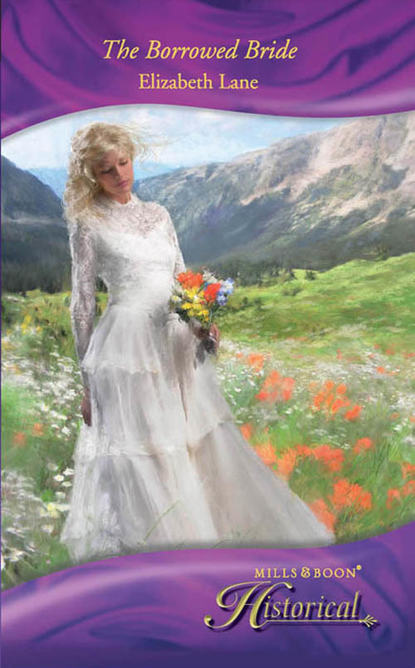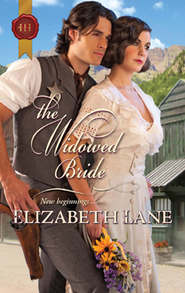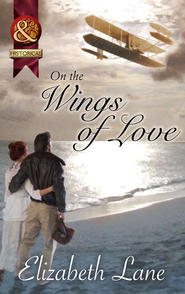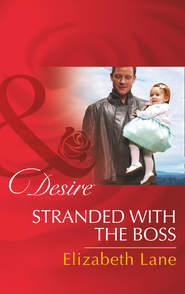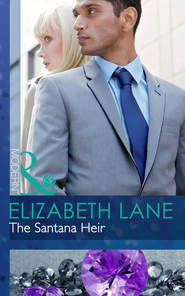По всем вопросам обращайтесь на: info@litportal.ru
(©) 2003-2024.
✖
The Borrowed Bride
Настройки чтения
Размер шрифта
Высота строк
Поля
“Glorious!” Judd snorted contemptuously. “It was a bloodbath! Seventy-six percent casualties, men dropping like mown wheat, all so Teddy Roosevelt could become a damned hero! They could’ve cut down the Spanish with artillery fire before they sent us up. But no, somebody couldn’t wait—”
“Really, Judd!” Edna’s spidery fingers clutched her folded umbrella. “All this talk about the war is giving me a headache, and I didn’t bring my pills. Can’t you just be quiet until we get home?”
Judd sighed and hunched over the reins. Hannah squirmed on the padded leather bench. How could this joyless family have produced her loving, laughing Quint? Maybe he was a changeling. Or maybe he took after his long-dead father. Whatever the explanation, she missed him so much that she wanted to cry her eyes out.
In funereal stillness they drove along the rutted road, through clumps of dripping willow and across the open grassland. To the west, craggy peaks crowned in glittering snow rose above the gray mist. Rain drizzled lightly off the top of the buggy. For Hannah, the silence was becoming unbearable.
“Quint told me that the biggest mountain in North America was in Alaska,” she said. “Do you think he’ll get a chance to see it?”
Edna Seavers shot Hannah a glare—the first time the woman had actually looked at her all morning. “I asked for quiet,” she said. “Please have the courtesy to respect my wishes.”
“I’m sorry,” Hannah murmured. “I only meant to—”
“That’s enough, young lady. And I’ll thank you not to mention my son in my hearing. I’m upset enough as it is, and my headache is getting worse.”
“Sorry.” Hannah glanced at Judd’s craggy profile. He was looking straight ahead, his mouth set in a chiseled line. Clearly, he wasn’t about to spring to her defense against his own mother.
Stomach churning, she stared down at her clenched hands. This had been the worst morning of her life. And being around these two miserable people wasn’t making it any better.
“Stop the buggy,” she said. “I want to walk.”
Judd turned to look at her, a puzzled frown on his face. “Don’t be silly. It’s raining,” he said.
“I don’t care. I’m already wet.”
“All right, if that’s what you want.” He tugged the reins hard enough to halt the plodding team. “Can you make it home from here? It’s a couple of miles by the road.”
“I know a shortcut. I’ll be fine. Thank you for the ride.” She clambered out of the wagon, holding her skirts clear of the mud. Tears were welling like a spring flood. She gulped them back, turning away before they could spill over.
Judd watched her leave the road and stride across the open pastureland. Head high, braids flung back, she walked like a queen. The Gustavsons barely had a pot to piss in. But this one had pride.
“We need to get home,” his mother said.
“Fine.” Judd clucked the team into motion. “You were rude to her, Mother. You should have apologized.”
“Why? So she can come over and moon around the house while Quint is gone? I’ll miss your brother, but I’m hoping he’ll stay away long enough for her to find somebody else. She’s a pretty thing, but she’s as common as dirt—certainly not of our class.”
Judd didn’t reply. His mother’s views hadn’t changed in thirty years. Arguing with her would be a waste of breath.
Looking across the pasture, he could still see the splash of Hannah’s red dress against the drab yellow grass. His eyes followed her until she vanished into the trees.
Chapter Two
May 19, 1899
Dear Quint…
Hannah chewed on the stubby pencil to bite away the wood and expose more of the meager lead. If she went for a knife to sharpen it, one of her parents was bound to see her and give her some chore to do. Most days she wouldn’t have minded. But this letter couldn’t wait. She had to finish it and get it to town before the westbound train picked up the mail.
The shade of new-leafed aspens dappled her skirts as she shifted her knees beneath the notebook. Below the bank, the creek flowed high with mountain snow melt. The rushing water laughed and whispered. A magpie scolded from the crest of a yellow pine.
Steeling her resolve, she pressed the blunted lead against the paper, forced it to form letters, then words.
It’s springtime here. Violets are blooming in the pasture. Bessie has a new calf. Papa let me help with the birthing of it…
Hannah paused, chewing her lower lip in frustration. She was wasting precious time and paper. There was no way to soften the blow of what she had to tell Quint. Best to just write it out plain and be done.
But at a time like this, even plain words were as hard to come by as gold coins in a pauper’s graveyard.
In the months Quint had been gone, Hannah had yet to receive a single letter from him. But Alaska was far away—so remote that he might as well be on the moon. And Quint had told her that he might be prospecting in remote areas with no postal service. Surely there was no cause to worry. But Hannah did worry. Anxiety had become a constant companion, a parasite that gnawed at her insides day and night.
Especially now.
Only the memory of Edna Seavers’s wintry eyes and Judd’s indifferent manner kept her from crossing the open pastureland to rap on the door of their big, bleak house. In any case, it would be a wasted trip, Hannah told herself. Since she hadn’t heard from Quint, it wasn’t likely his mother and brother had heard from him, either.
As for her own letters, the ones she’d written faithfully and carried into town every week, they could be anywhere, lost between here and the frozen North. She could only pray that this one letter would find him and bring him home.
The first month, when her menstrual flow hadn’t come, she’d dismissed it from her mind. Her periods had always been irregular. But after the second month the secret dread had sprouted and begun to root. Last week, when she’d started throwing up in the morning, all doubt had vanished. After seeing her mother through six pregnancies, Hannah knew the signs all too well.
So far she’d managed to hide her condition from her family. But her mother had eyes like a hawk. She was bound to notice before long. Another couple of months, and the whole town would know about the secret thing she and Quint had done in that shadowed hayloft.
Ripping the page out of the notebook, Hannah crumpled it in her fist and began again.
Dear Quint,
I have something important to tell you…
The knot in Hannah’s stomach tightened. Quint had been so excited about his great adventure. Her news would devastate him. He might even blame her for allowing this to happen. Surely he would consider it his duty to come home and marry her. But he wouldn’t be happy about it. Quint had chafed under the burden of caring for the ranch and his ailing mother. Much as he’d professed to love her, Hannah could only imagine how he’d feel about being saddled with a wife and child.
But in the larger scheme of things Quint’s feelings, and hers, didn’t matter. A baby was coming—an innocent little spirit who deserved a mother and a father and an honorable name. She would do the right thing. So would Quint. It wasn’t the best beginning for a marriage, but they’d loved each other for years. God willing, they would be happy.
If only she could get word to him.
Gripping the pencil, she hunched over the notebook.
There’s no easy way to say this. We’re going to have a child, my dearest. It should be born in December. I know how much you want to find your fortune in Alaska. But we have to think of the baby now. You need to come home so we can get married, the sooner the better.
By the time she finished the letter, Hannah’s eyes were blurry with tears. She folded the sheet of cheap, ruled notepaper and tucked it into her apron pocket. Her fingers fumbled for the pennies she’d scrimped to buy an envelope and a postage stamp.
All her hopes and prayers would be riding with this letter. Somehow it had to reach Alaska and find its way to Quint.
It just had to.
June 6, 1899
Judd had been riding fence since dawn, checking for weak spots where a cow could push its way through or tangle its head in a loose strand of barbed wire. Now the midday sun blazed down with the heat of a black-smith’s forge. He was sore and sweaty, and his mouth was as dry as alkali dust. But he had to admit that he relished the work. Anything was better than lying in that god-awful excuse for a hospital, listening to the groans and whimpers of men who would never go home again except in a pine box.
At the watering trough, he dismounted. While the horse drank, he scooped the mossy water in his Stetson and emptied it over his head. The wetness streamed off his hair to soak into his sweat-encrusted shirt. Judd sluiced his arms, savoring the coolness. At rare moments like this he almost felt alive again. But the feeling never lasted. His body might be healing, but the blackness in his soul lurked like a pool of quicksand, waiting to suck him down.





